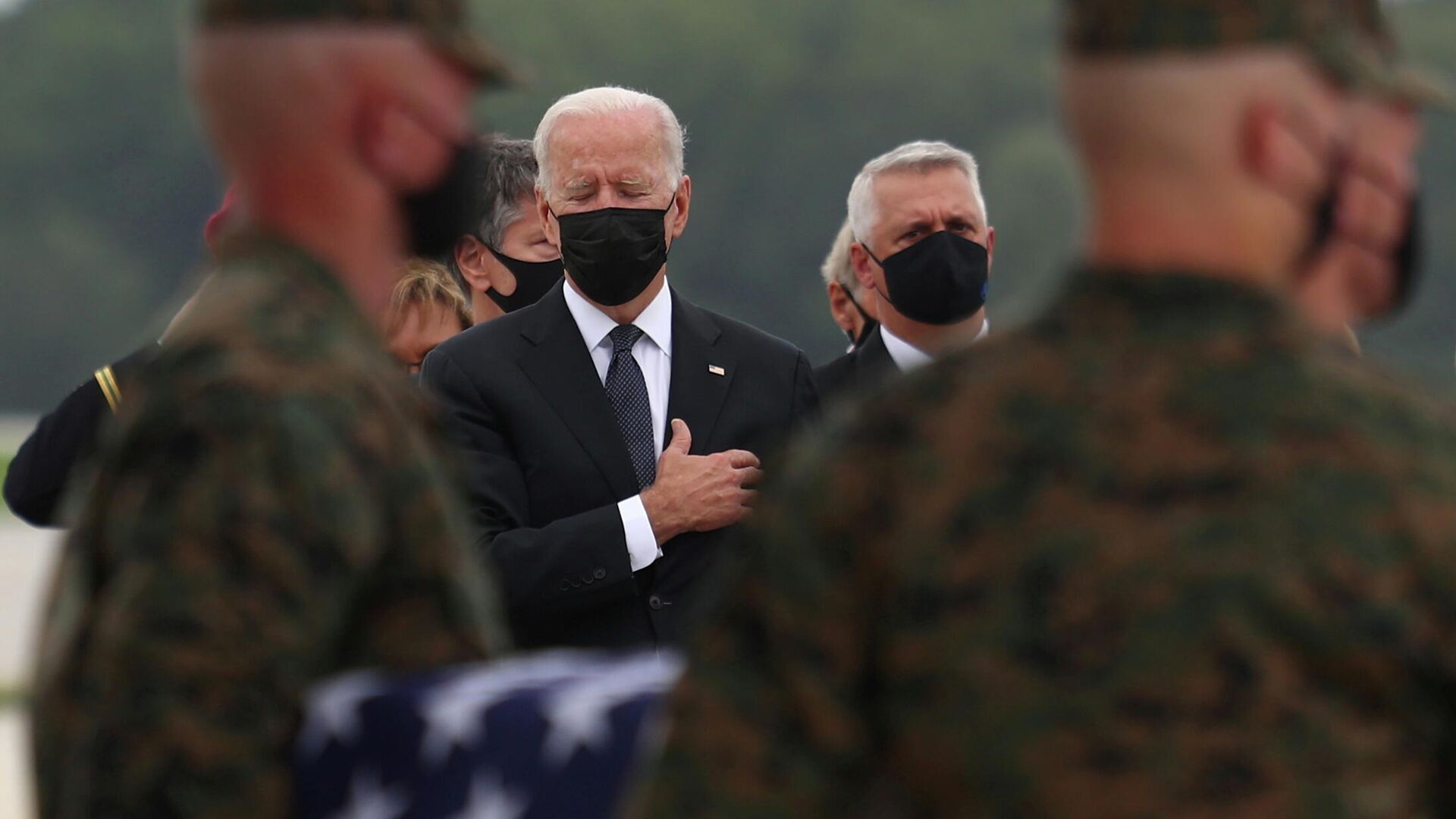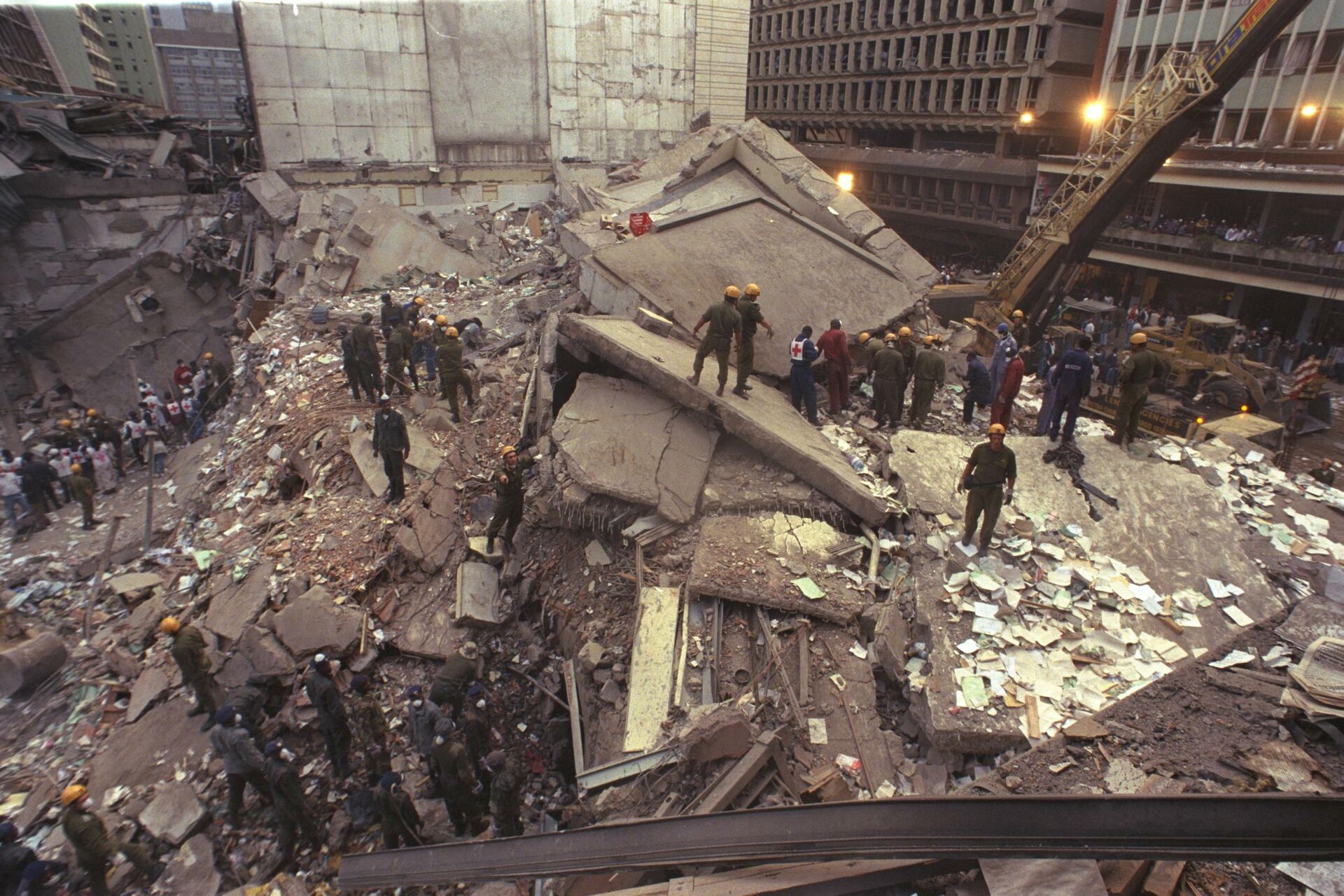‘Somber Atmosphere’: Former Mossad Chief Talks About Changes 9/11 Attacks Brought in Intelligence
02:55 GMT 12.09.2021 (Updated: 04:52 GMT 12.09.2021)

© REUTERS / TOM BRENNER
Subscribe
9/11 significantly affected US domestic and foreign policy, marking a new chapter in its globalized worldview. Citing terrorist threats, the US invaded Afghanistan and Iraq. Campaigns in the Middle East severely destabilized the region and the consequences are expected to echo for decades.
On the day of the 20th anniversary of the attack, a former Mossad chief, Efraim Halevy, spoke about preventing terrorist attacks and ways 9/11 changed national security.
86-year-old Halevy, who served three and half years as the Mossad chief, told the Times of Israel that he and his team quickly realized that Israel had to share any available intelligence with the US as well as “to initiate activities to gather information subsequent to the attack.”
“It was a very somber atmosphere. An Israeli was killed in one of the aircraft, he had been an officer in an elite unit in Israel. So there was an Israeli ‘angle’ to this, beyond the Israelis who were killed in New York, which was an event itself,” he said.
Daniel Lewin was an Israeli-American businessman with a degree in mathematics from MIT. He previously served four years in the Israel Defense Forces’ Sayeret Matkal, “an elite unit that works closely with the Mossad and Israel’s other intelligence services.” He was said to have been stabbed by one of the terrorists who hijacked the American Airlines Flight 11, apparently while trying to prevent the action. Reportedly, five Israeli citizens died in the attacks.
The former spy master admitted that he immediately realized the attacks could trigger another world war. It didn’t happen, but as a result of the 11 September events, hostilities shook the entire of the Middle East.
“Not everything I anticipated turned out that way, but I did think that what was clear was that as a result of this, terror had to be treated in a different way and the priorities had to be in a different way and that the rules of combat had to be changed in terms of how you deal with potential threats, like figures who may be potential terrorists,” he said.
He noted that the terrorist acts also changed the way intelligence operated, finding it more important to “prevent” rather that punish, which made such practices as surveillance and torture more common.
Halevy denied allegations that Israel had offered specific details to US agencies about the possible terror acts, asserting that 9/11 "caught everyone by surprise."
The former Mossad chief stressed there were certain signs that should have given the US a heads-up, including prior Al-Qaeda* attacks that showed it was a dangerous threat.
He referred to the US embassy bombings in Kenya’s Nairobi and Tanzania’s Dar es Salaam that killed over 200 people in 1998. Halevy also mentioned the explosion in Aden, near the Yemeni coast, that killed 17 American naval personnel on board the USS Cole.

An IDF rescue team looking for survivors of the car bomb that blew up the American embassy building in Nairobi, Kenya, 9 August 1998
CC BY-SA 3.0 / IDF Spokesperson's Unit /
Pointing out that Al- Qaeda proved able to carry out “firsts in terms of the scope of the attack” operations, Halevy suggested that 9/11 Al-Qaeda terrorists were the first to use the internet while “no one covered the internet in such a way and was also a very, very stark revelation”.
Halevy defended George Tenet, then-CIA chief, who came under fire for allowing the situation to occur. The 9/11 National Commission on Terrorist Attacks Upon the US claimed that he lacked “imagination.”
“I can imagine all kinds of things that might happen tomorrow morning, that the Iranians might do, that the Taliban might do. Imagination is important, but it also somehow needs to be linked to some kind of a factual basis,” Halevy pointed out.
He added that even if Tenet had prevented the attack, he wouldn’t have been able to justify the extremity of the security measures following 9/11. Halevy hasn’t excluded gaps in the scope of the intelligence services that prevented them from recognizing and dismantle the suicide attacks.
“The fact that it was such a coordinated effort, that some of the people who participated in the attacks and took control of the aircraft had undergone training in a facility in Florida and learned how to fly aircraft, and nobody took any notice of this was a sign that people were not looking in the right direction. The events of September 11 were a novelty the kind of which no one ever predicted,” he said.
The 11 September attacks were believed to have been planned by Al-Qaeda leader Osama bin Laden, who at that time was in Afghanistan under the protection of the Taliban*, which had been in power since 1996. When Kabul refused to extradite bin Laden, the US initiated military intervention, quickly overthrowing the Taliban government and pledging to support democracy and eliminate terrorism in the country.
*Terrorist organizations banned in Russia and many other countries
